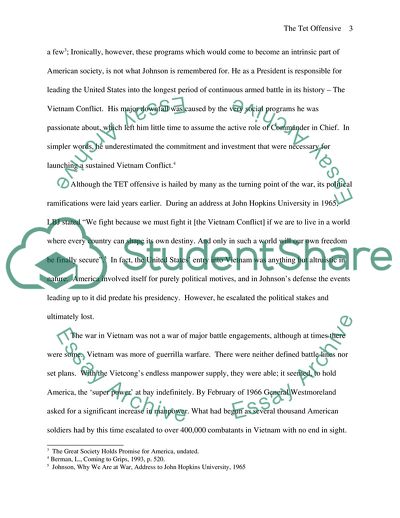Cite this document
(A military victory but a political defeat. Is this an accurate Coursework, n.d.)
A military victory but a political defeat. Is this an accurate Coursework. https://studentshare.org/military/1702938-a-military-victory-but-a-political-defeat-is-this-an-accurate-description-of-the-tet-offensive
A military victory but a political defeat. Is this an accurate Coursework. https://studentshare.org/military/1702938-a-military-victory-but-a-political-defeat-is-this-an-accurate-description-of-the-tet-offensive
(A Military Victory But a Political Defeat. Is This an Accurate Coursework)
A Military Victory But a Political Defeat. Is This an Accurate Coursework. https://studentshare.org/military/1702938-a-military-victory-but-a-political-defeat-is-this-an-accurate-description-of-the-tet-offensive.
A Military Victory But a Political Defeat. Is This an Accurate Coursework. https://studentshare.org/military/1702938-a-military-victory-but-a-political-defeat-is-this-an-accurate-description-of-the-tet-offensive.
“A Military Victory But a Political Defeat. Is This an Accurate Coursework”. https://studentshare.org/military/1702938-a-military-victory-but-a-political-defeat-is-this-an-accurate-description-of-the-tet-offensive.


